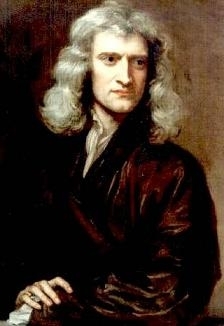Sir Isaac Newton
From The Encyclopedia of Earth
Newton, Isaac
April 8, 2010, 12:33 pm
Sir Isaac Newton (1642–1727), an English mathematician and natural philosopher still considered by many to be the greatest scientist that ever lived. Newton summarized his discoveries in terrestrial and celestial mechanics in his Philosophiae Naturalis Principia Mathematica (Mathematical Principles of Natural Philosophy, 1687), one of the greatest works in the history of science. In Book I of Principia, Newton defined the three laws of motion, now known as Newton's laws: the law of inertia; the law of action and reaction; and the law of acceleration proportional to force. Book II presented Newton's new scientific philosophy that would replace Cartesianism. Book III presented the applications of his dynamics, including an explanation for tides and a theory of lunar motion. Newton also correctly formulated and solved the first ever problem in the calculus of variations; however, he did not publish his work on calculus until after Leibniz had published his. This produced a long-running feud between English and continental European mathematicians that would last for decades. Newton’s work surpassed that of all scientists before him, concisely stating simple yet elegant scientific principles and methods that applied to all branches of science. The Latin inscription on Newton's tomb reads, "Mortals! Rejoice at so great an ornament to the human race!"
